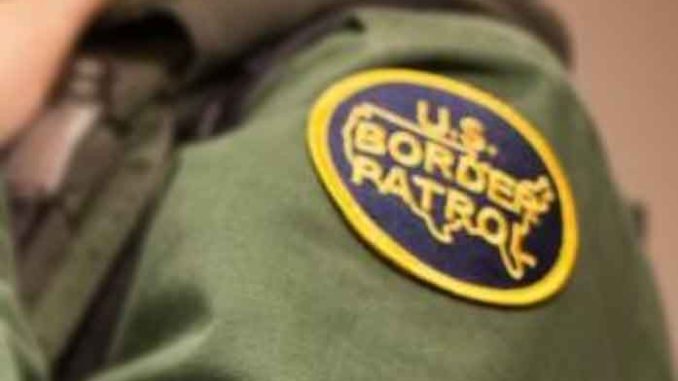
In the aftermath of sensational press coverage of incident involving 10-year-old Rosa Maria Hernandez, Border Patrol agents are facing attacks for following the law. Now the National Border Patrol Council is calling upon Customs and Border Protection (CBP) to clarify the facts surrounding the issue to the public.
On October 24, 2017, at approximately 3:30 a.m. Rosa Maria Hernandez, age 10, and her adult cousin, were on their way to Driscoll Children’s Hospital in Corpus Christi, Texas. Rosa Maria and her cousin were traveling from Laredo, Texas, in a four-door sedan via Highway 59. The four-door sedan Rosa Maria and her cousin were traveling in was a non-ambulance/contracted private medical transport. Rosa Maria was traveling to Driscoll Children’s Hospital for a scheduled gallbladder surgery.
According to the National Border Patrol Council, all vehicles traveling northbound on Highway 59 are required to stop at the Freer Border Patrol checkpoint for an immigration inspection of all occupants. The Freer Border Patrol checkpoint is located approximately 43 miles east of Laredo, Texas.
The National Border Patrol Council reports:
Once at the Freer Border Patrol checkpoint, an immigration inspection was conducted on Rosa Maria, her cousin, and the contracted driver of the four-door sedan — as is policy for all occupants of vehicles traveling through the checkpoint. During the immigration inspection, it was determined that Rosa Maria was a citizen of Mexico and was illegally in the country. Rosa Maria was not traveling with her legal guardian and was determined to be an unaccompanied minor, as parents or guardians were not with her. In cases involving unaccompanied minors, Border Patrol agents are required by law to take steps to safeguard the welfare of the children they encounter while performing their official duties. This largely stems from the high incidence of human trafficking associated with unaccompanied minors and the porous U.S.-Mexico border.
Border Patrol agents conducting the immigration inspection on the occupants of the four-door sedan were notified that Rosa Maria had a 6:30 am appointment for gallbladder surgery in Corpus Christi, Texas. At no time were Border Patrol agents notified that Rosa Maria had cerebral palsy. After being delayed for approximately 15 minutes at the Freer Border Patrol Checkpoint, the four-door sedan with Rosa Maria, her cousin, and the contracted driver were escorted to Corpus Christi, Texas, by Border Patrol agents so that the unaccompanied minor could receive needed healthcare. Rosa Maria arrived at Driscoll Children’s Hospital with sufficient time for hospital staff to perform the scheduled gallbladder surgery.
In order to ensure Rosa Maria’s well-being, she was referred to the Office of Refugee Resettlement, as required by law.
The American Civil Liberties Union (ACLU) claims it is “an egregious case of government overreach.” In the lawsuit, the ACLU claims that the vehicle was forced to pull over and only after “a half an hour or so, the Border Patrol agents said that Aurora and Rosa Maria could continue onto the hospital, but that they were going to follow them and once the surgery was over, “the girl” would be “processed” for deportation.”
The ACLU claims that Rosa Maria’s ongoing detention “violates both her and her parents’ due process rights to family integrity under the Fifth Amendment. This case involves “perhaps the oldest of the fundamental liberty interests recognized by” the Supreme Court—“the interest of parents in the care, custody, and control of their children.”
Rosa Maria’s parents are not in the U.S., nor are they American citizens.
“Misconceptions about this matter have thrived in a media environment that too often engages in knee-jerk criticisms and attacks on law enforcement personnel. The Border Patrol’s parent agency, CBP, could offer clarification on the facts instead of sitting silently as Border Patrol agents are criticized for the very false perceptions that CBP silence has allowed to grow,” said the National Border Patrol Council in a statement issued this week.
“Border Patrol agents performed their duties professionally and followed the laws that U.S. Congress passed and leaves in place,” continued the Council. “The NBPC calls not only on CBP to publicly clarify the facts around the issue, but also upon others in society to direct their frustrations toward the actual lawmakers in Congress for laws that upset them — not toward the law enforcement personnel who follow and enforce the laws.”
